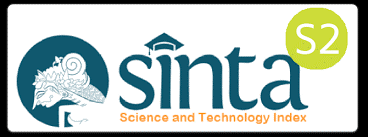Maternal knowledge and Determinants to Cognitive Development of Stunted Toddlers in Bantul Regency, Yogyakarta
DOI:
https://doi.org/10.35730/jk.v16i2.1323Abstract
Background: Stunting remains a major public health issue in Indonesia, with a prevalence of 21.6% in 2021 well above the SDG target of 14% by 2030. Beyond physical growth, stunting significantly impairs cognitive development, influencing future learning ability and productivity. Contributing factors include nutritional status, age, sex, birth conditions, and maternal knowledge.
Purpose: This study aimed to examine the association between maternal knowledge and other determinants with the cognitive development of stunted toddlers.
Methods: A cross-sectional study was conducted involving 48 mothers of stunted toddlers in Bantul Regency, Yogyakarta, selected via purposive sampling. Stunting was defined as a height-for-age z-score < -2 SD. Child cognitive function was measured using the Bayley-III, and maternal knowledge was assessed through a validated questionnaire. Statistical analysis included chi-square tests and logistic regression (p < 0.05; 95% CI), with model fit evaluated using AIC and R².
Results: Maternal knowledge was significantly associated with child cognitive development. Surprisingly, children of mothers with “adequate” knowledge had better cognitive outcomes compared to those with “good” knowledge (RR = 1.53; 95% CI: 1.52–1.53; p < 0.01). Other significant predictors included birth order (RR = 1.50 and 1.01; p < 0.05), gestational age (RR = 0.71; p < 0.01), low maternal education (RR = 1.33; p < 0.01), and maternal employment (RR = 1.42; p < 0.1 and p < 0.05). Child age was not significantly associated.
Conclusion: Maternal knowledge is a key determinant of cognitive development in stunted toddlers, even when controlling for demographic and social variables. Additional factors such as birth order, gestational age, maternal education, and employment also contribute. Holistic, stage-based interventions are essential to support cognitive development in stunted children.
Downloads
Published
Issue
Section
License
Copyright (c) 2025 Dewi Rokhanawati, Nidatul Khofiyah, Elika Puspitasari

This work is licensed under a Creative Commons Attribution-NonCommercial-ShareAlike 4.0 International License.



